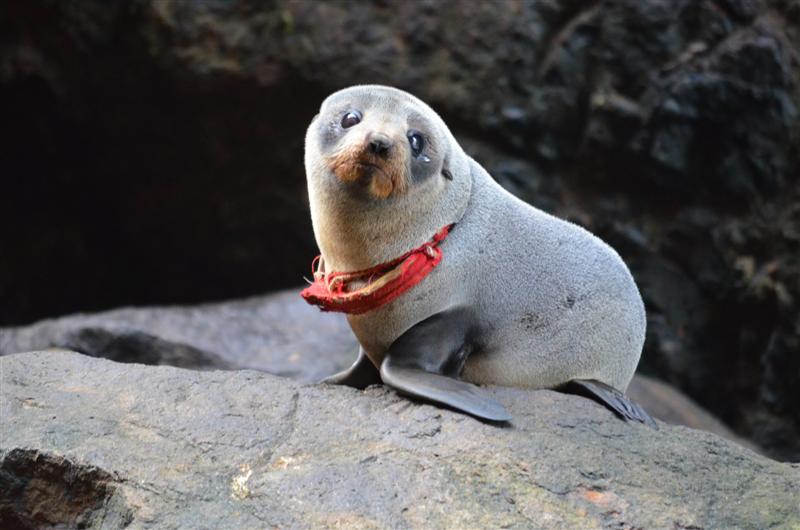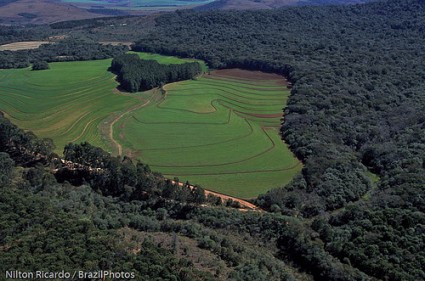
A cleared section of the Brazilian rainforest.
American activists may lament that their work isn’t bringing about enough change (or media coverage), but they rarely have to put their lives on the line or face crippling corruption.
Activists in other parts of the world are not so lucky.
A story from Mexico, in the New York Times:
On the morning of April 15, 2011, using rocks and fireworks, a group of women attacked a busload of AK-47-armed illegal loggers as they drove through Cherán, residents said. The loggers, who local residents say are protected by one of Mexico’s most powerful criminal organizations and given a virtual free pass by the country’s authorities, had terrorized the community at will for years.
Cherán’s residents said they had been subjected to multiple episodes of rape, kidnapping, extortion and murder by the paramilitary loggers, who have devastated an estimated 70 percent of the surrounding oak forests that sustained the town’s economy and indigenous culture for centuries.
What happened next was extraordinary, especially in a country where the rule of law is often absent and isolated communities are frequently forced to accept the status quo. …[H]ere in Cherán, a group of townspeople took loggers hostage, expelled the town’s entire police force and representatives of established political parties, and forcibly closed the roads.
Residents of Cherán still man round-the-clock barricades, blocking the town’s streets with fire. Late last year, the town was granted autonomy from the federal government, allowed to provide its own protection. The downside is that residents are confined to their village, unable to venture far into the forest lest they face retribution. Several villagers have been killed after doing so. It’s unclear how long this stalemate will continue.
In Brazil, the return of environmental protections to local control has meant inadvertently weakening them. From Reuters, one example:
Ivo Lubrinna has been wildcatting for gold in the jungle here for more than 30 years. It’s a notoriously messy business, as crews strip away topsoil in the forest and along riverbanks and use mercury and other pollutants to draw precious metal from mud.
For the past two years, Lubrinna has held a second job: environment secretary for this riverside city of 100,000 people, gateway to the oldest national park and half a dozen nature reserves in Brazil’s vast Amazon wilderness. As such, it’s his job to protect the area from the depredations of loggers, poachers, squatters — and gold miners. …
“I have to be good early in the day,” the burly, bald 64-year-old says in his stand-at-attention baritone. “In the afternoon, I watch out for myself.”
Brazil’s president, Dilma Rousseff, believes that increasing local control and reducing restrictions on Amazonian development is necessary for the country’s continued economic growth. The campaign contributions from corporations interested in expanding development probably didn’t dissuade her.
Brazil’s well-established environmental movement is aghast. Rousseff’s policies, they say, endanger the world’s largest rainforest, the storehouse of one-eighth of the planet’s fresh water, a primary source of its oxygen and home to countless rare and undiscovered plant and animal species, as well as tens of thousands of native tribespeople. The short-term economic gain, Rousseff’s critics say, isn’t worth the potential long-term cost to the global environment, as well as Brazil’s economy.
“This is a government willing to sacrifice the resources for thousands of years in exchange for a few decades of profit,” says Marina Silva, a former environment minister and a pioneer of Brazil’s green movement.
Brazil’s reversal on these issues appears to be accelerating. The Reuters article relays several additional stories — ending with this one.
[L]ast month, … agents at the airport in Belem, the capital of Para, detained a man they found traveling with a Styrofoam cooler containing the frozen 22-pound carcass of an endangered Amazonian turtle. The agents seized the carcass, fined the man 5,000 reais ($2,500), and filed criminal charges against him.
The turtle-toting traveler: Ivo Lubrinna.



